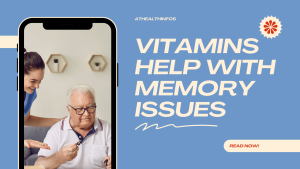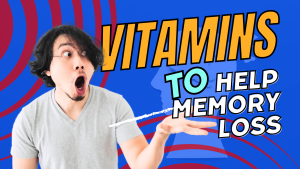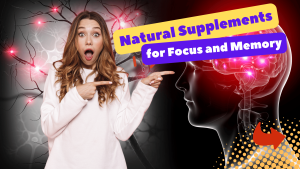Key Takeaway
| Vitamin | Effect on Memory | Recommended Dosage | Food Sources |
|---|---|---|---|
| B12 | Prevents or slows cognitive decline in older adults with low levels of B12 | 2.4 mcg per day for adults | Fish, poultry, eggs, dairy, fortified cereals |
| E | May benefit the mind and memory in older people with Alzheimer’s disease | Up to 400 IU per day for adults | Nuts, seeds, vegetable oils, spinach, broccoli |
| Omega-3 | May improve memory and cognitive function in healthy people and those with mild cognitive impairment | 250-500 mg per day of EPA and DHA for adults | Fatty fish, flaxseeds, walnuts, soybeans |
What Vitamin Is Good for Memory Loss: Introduction
Memory loss is a common concern as we age. Some vitamins and supplements may help boost memory and prevent or slow down cognitive decline. However, not all memory enhancers are effective or safe. This article will review the evidence for three vitamins that may have some benefits for memory: B12, E, and omega-3. It will also provide some tips on how to get enough of these vitamins from food or supplements.

Vitamin B12 and Memory

- B12 is essential for the production of red blood cells, DNA, and nerve function
- Low levels of B12 can cause anemia, fatigue, weakness, numbness, and memory problems
- B12 deficiency is more common in older adults, vegetarians, vegans, and people with certain medical conditions or medications
- Studies have shown that supplementing with B12 can prevent or slow cognitive decline in older adults with low levels of B12
- However, there is no evidence that higher intake of B12 has any positive effects on memory in people with normal levels of B12
- The recommended daily intake of B12 for adults is 2.4 mcg
- B12 is mainly found in animal products, such as fish, poultry, eggs, dairy, and fortified cereals
- Vegans and vegetarians may need to take a B12 supplement or consume fortified foods
Vitamin E and Memory
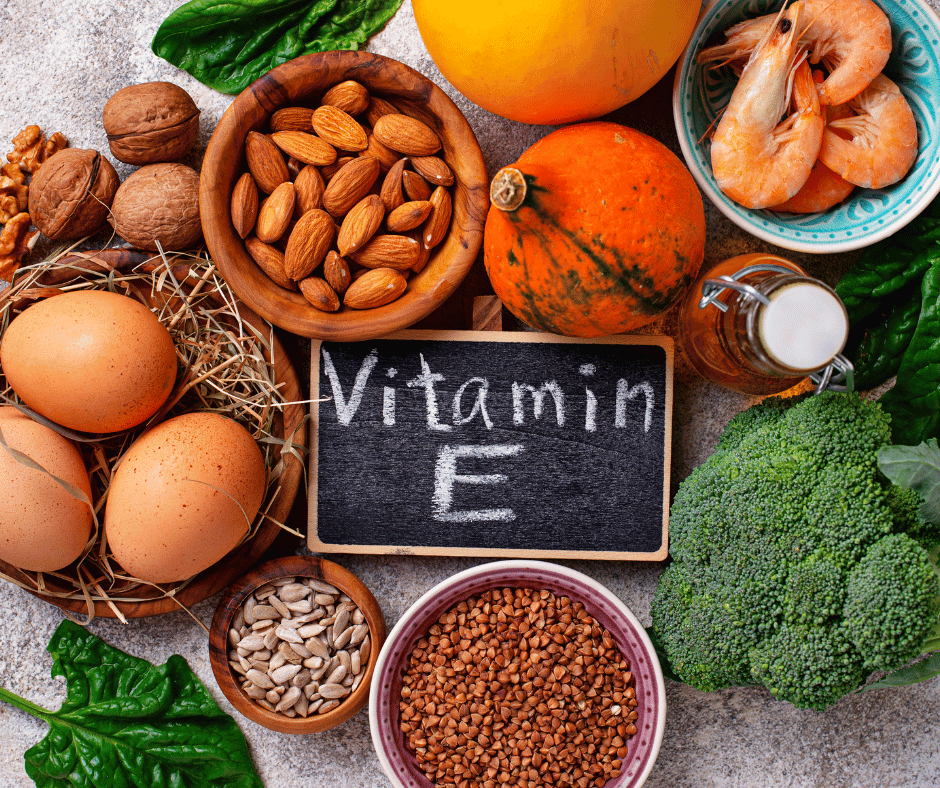
- Vitamin E is a fat-soluble antioxidant that protects the cells from oxidative stress and inflammation
- Oxidative stress and inflammation are linked to aging and neurodegenerative diseases, such as Alzheimer’s disease
- Vitamin E may benefit the mind and memory in older people with Alzheimer’s disease by slowing down the progression of the disease
- A large study found that high doses of vitamin E (2000 IU per day) improved the daily functioning and delayed the need for institutionalization of people with mild to moderate Alzheimer’s disease
- However, this dose may be unsafe for some people, especially those with cardiovascular disease or blood clotting disorders
- Vitamin E may also interact with some medications, such as blood thinners, cholesterol-lowering drugs, and chemotherapy drugs
- The recommended daily intake of vitamin E for adults is 15 mg (or 22.4 IU)
- Vitamin E is found in nuts, seeds, vegetable oils, spinach, broccoli, and other plant foods
- Most people can get enough vitamin E from food, but some people may need a supplement if they have a malabsorption disorder or a genetic condition that affects vitamin E metabolism
Omega-3 and Memory

- Omega-3 fatty acids are essential for brain health and function
- They are involved in the structure and signaling of brain cells, the production of neurotransmitters, and the regulation of inflammation
- Omega-3 fatty acids may improve memory and cognitive function in healthy people and those with mild cognitive impairment
- Several studies have shown that supplementing with omega-3 fatty acids can enhance memory, learning, attention, and mood in young and middle-aged adults
- Other studies have suggested that omega-3 fatty acids can prevent or delay cognitive decline and dementia in older adults
- However, the results are not consistent and more research is needed to confirm the optimal dose and duration of omega-3 supplementation for memory
- The recommended daily intake of omega-3 fatty acids for adults is 250-500 mg of EPA and DHA, the two most important types of omega-3 fatty acids for brain health
- EPA and DHA are mainly found in fatty fish, such as salmon, tuna, sardines, and mackerel
- Other sources of omega-3 fatty acids include flaxseeds, walnuts, soybeans, and algae
- People who do not eat fish or enough plant sources of omega-3 fatty acids may benefit from taking a fish oil or algae oil supplement
5 popular brands of natural supplements for memory loss
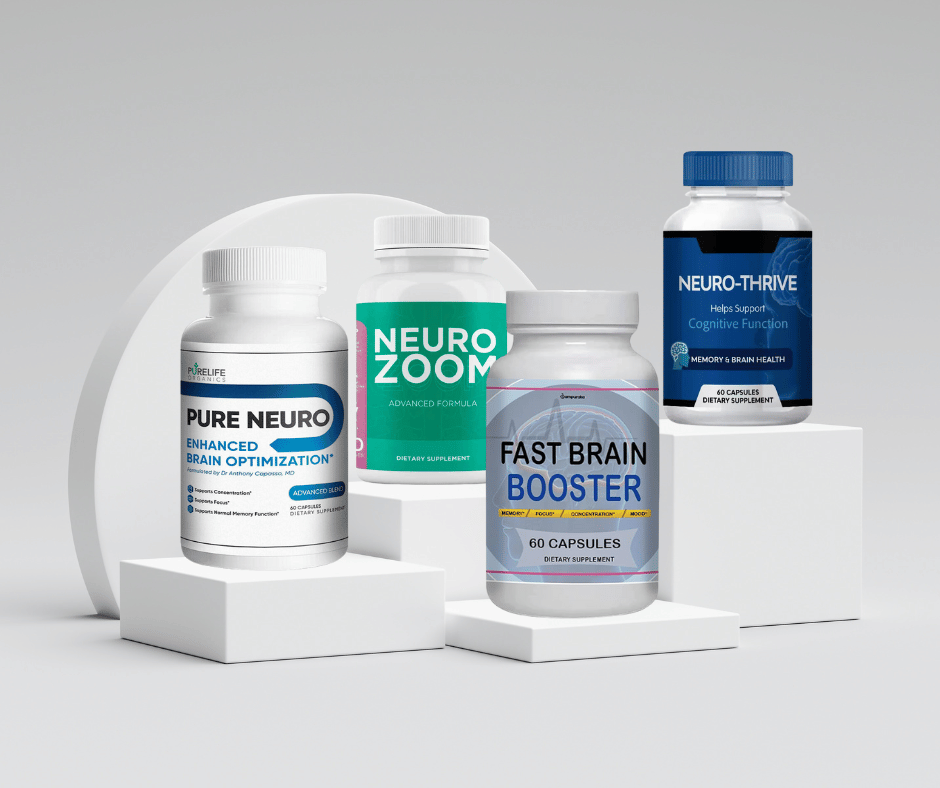
Here is a table that compares five popular brands of natural supplements for memory loss:
| Brand | What It Is | Ingredients | Benefits | Price |
|---|---|---|---|---|
| Pure Neuro | A dietary supplement that nourishes the brain, enhancing cognitive function and memory retention | Propolis, oat straw extract, bacopa, L-theanine, and other vitamins, minerals, and herbs | Prevents or slows cognitive decline, improves alertness and focus, supports alpha brain waves | $49/bottle |
| Fast Brain Booster | A nootropic supplement that improves cognitive function and mental energy | Nitrate, caffeine, ginkgo biloba, ginseng, and other antioxidants, minerals, and herbs | Enhances memory, learning, attention, and mood, reduces oxidative stress and inflammation, protects brain cells | $23.55/bottle |
| Alpha BRAIN | A supplement that enhances memory, focus, and alpha brain wave production | L-theanine, oat straw extract, bacopa, phosphatidylserine, and other amino acids, vitamins, and herbs | Supports mental processing, productivity, and flow state, slows down the progression of Alzheimer’s disease, increases neurotransmitter activity | $79.95/bottle |
| NeuroZoom | A supplement that supports healthy memory, concentration, and mental acuity | Antioxidants, plant extracts, minerals, vitamins, herbs, and other carefully chosen components for brain health | Improves memory and recall, reduces cell death and degenerative brain diseases, rejuvenates the brain | $49/bottle |
| ProMind Complex | A supplement that flushes out the brain plaque-forming bacteria and protects the mind from dental nerve bacteria | Ginkgo biloba, vinpocetine, phosphatidylserine, and other nootropics, vitamins, and herbs | Resolves brain fog, memory loss, and cognitive problems, enhances brain performance and memory function, inhibits free radicals and prevents damage | $49/bottle |
Conclusion – What Vitamin Is Good for Memory Loss?
Memory loss is a common concern as we age, but some vitamins and supplements may help boost memory and prevent or slow down cognitive decline. In this article, we reviewed the evidence for three vitamins that may have some benefits for memory: B12, E, and omega-3. We also provided some tips on how to get enough of these vitamins from food or supplements. However, it is important to note that not all memory enhancers are effective or safe, and that more research is needed to confirm the optimal dose and duration of vitamin supplementation for memory. Therefore, before taking any vitamins or supplements for memory, it is advisable to consult with your doctor and follow their recommendations. Remember, a balanced diet, regular exercise, and mental stimulation are also essential for maintaining a healthy brain and memory.
You might also be interested in…


